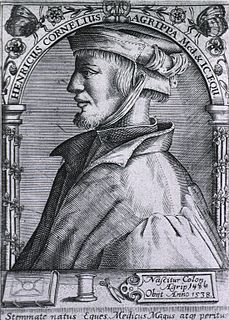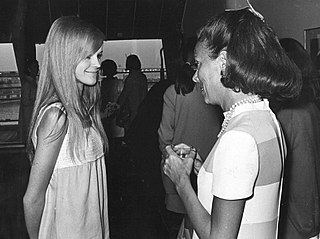A Quote by Thomas Carlyle
Of all the things which man can do or make here below, by far the most momentous, wonderful, and worthy are the things we call books.
Related Quotes
Imagination doesn’t just mean making things up. It means thinking things through, solving them, or hoping to do so, and being just distant enough to be able to laugh at things that are normally painful. Head teachers would call this escapism, but they would be entirely wrong. I would call fantasy the most serious, and the most useful, branch of writing there is. And this is why I don’t, and never would, write Real Books.
So if the worth of the arts were measured by the matter with which they deal, this art-which some call astronomy, others astrology, and many of the ancients the consummation of mathematics-would be by far the most outstanding. This art which is as it were the head of all the liberal arts and the one most worthy of a free man leans upon nearly all the other branches of mathe matics. Arithmetic, geometry, optics, geodesy, mechanics, and whatever others, all offer themselves in its service.
Commemoration of Gilbert of Sempringham, Founder of the Gilbertine Order, 1189 Some there are who presume so far on their wits that they think themselves capable of measuring the whole nature of things by their intellect, in that they esteem all things true which they see, and false which they see not. Accordingly, in order that man's mind might be freed from this presumption, and seek the truth humbly, it was necessary that certain things far surpassing his intellect should be proposed to man by God.
The difference between a man who is led by opinion or emotion and one who is led by reason. The former, whether he will or not, performs things of which he is entirely ignorant; the latter is subordinate to no one, and only does those things which he knows to be of primary importance in his life, and which on that account he desires the most; and therefore I call the former a slave, but the latter free.
Magic is a faculty of wonderful virtue, full of most high mysteries, containing the most profound contemplation of most secret things, together with the nature, power, quality, substance and virtues thereof, as also the knowledge of whole Nature, and it doth instruct us concerning the differing and agreement of things amongst themselves, whence it produceth its wonderful effects, by uniting the virtues of things through the application of them one to the other.
When Trump defends Planned Parenthood as doing 'wonderful things,' he is condoning the organization. Even if Planned Parenthood didn't do abortions, none of these 'wonderful things' are worthy of taxpayer funding. But thanks to Trump, the lie of Planned Parenthood's heroism has been further proliferated.
Philosophers have long conceded, however, that every man has two educators: 'that which is given to him, and the other that which he gives himself. Of the two kinds the latter is by far the more desirable. Indeed all that is most worthy in man he must work out and conquer for himself. It is that which constitutes our real and best nourishment. What we are merely taught seldom nourishes the mind like that which we teach ourselves.
In very truth, a wise imagination, which is the presence of the spirit of God, is the best guide that man or woman can have; for it is not the things we see the most clearly that influence us the most powerfully; undefined, yet vivid visions of something beyond, something which eye has not seen nor ear heard, have far more influence than any logical sequences whereby the same things may be demonstrated to the intellect. It is the nature of the thing, not the clearness of its outline, that determines its operation. We live by faith, and not by sight.
It is not the fault of the entrepreneurs that the consumers,the people, the common man,prefer liquor to Bibles and detective stories to serious books, and that governments prefer guns to butter. The entrepreneur does not make greater profits in selling bad things than in selling good things. His profits are the greater the better he succeeds in providing the consumers with those things they ask for most intensely.








































